#the rise and fall of an empire
Explore tagged Tumblr posts
Text

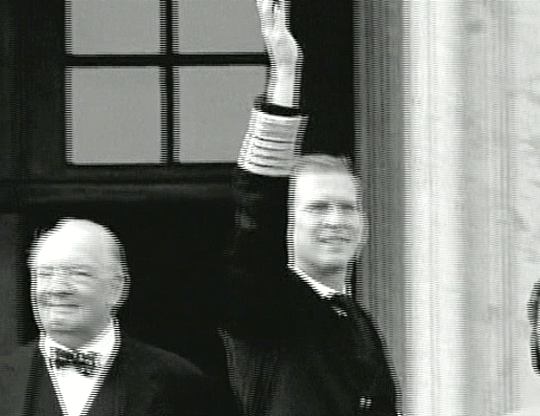
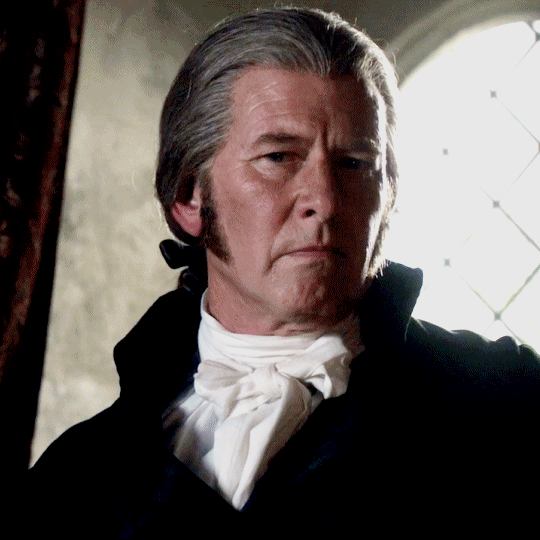

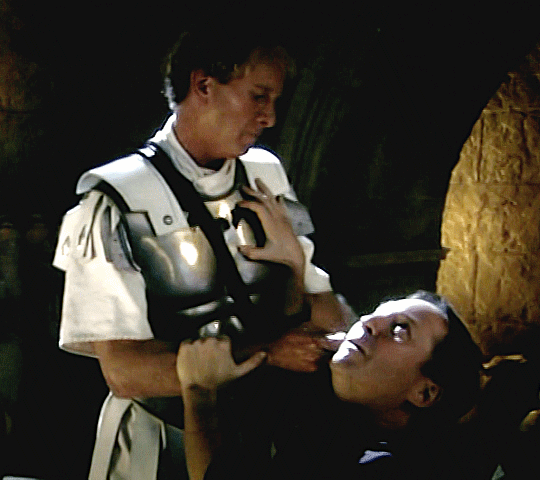
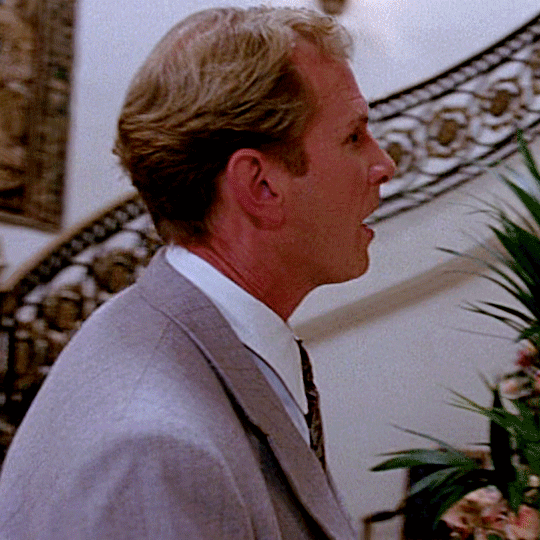
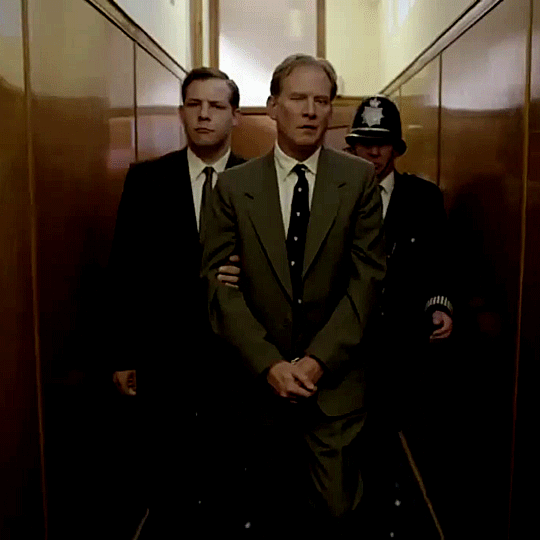
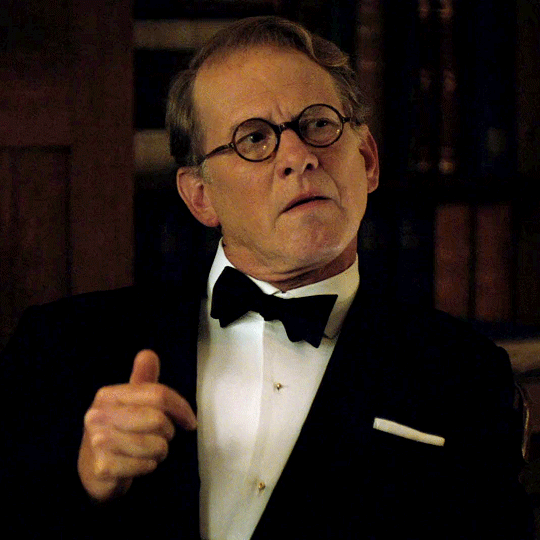
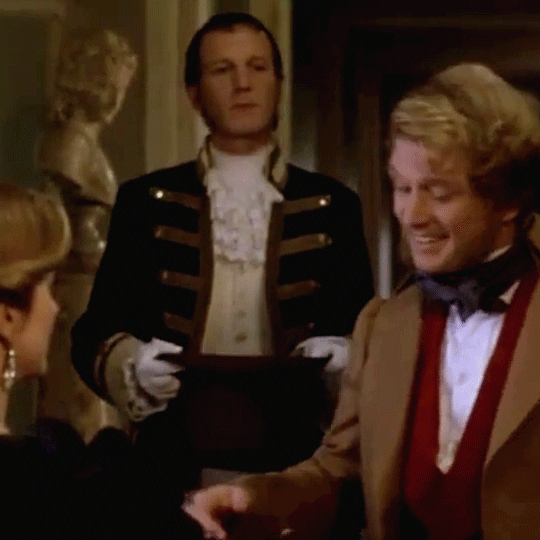
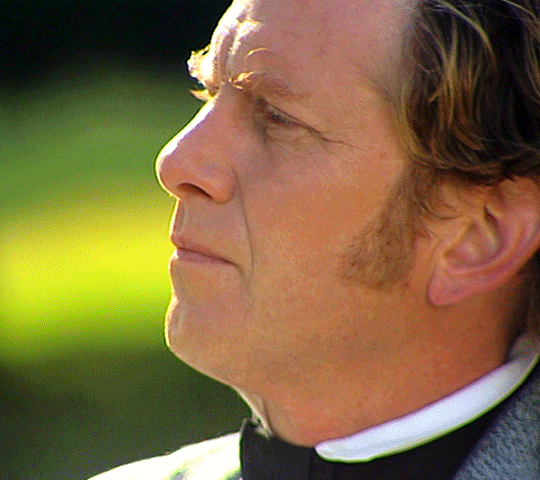

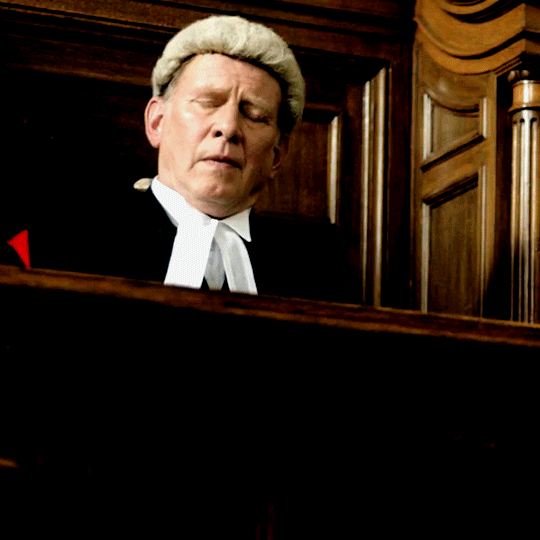


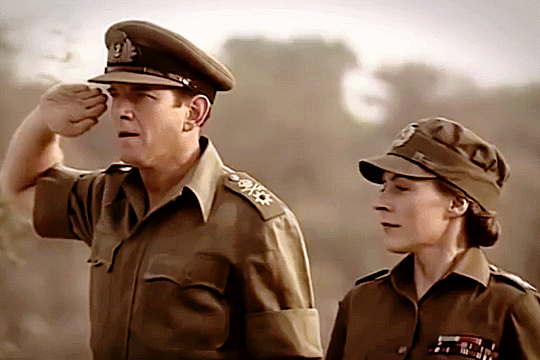
James Wilby + Historical Portrayals: .2nd Lt. Siegfried Lorraine Sassoon (Regeneration) .King George VI (Bertie & Elizabeth) .George Boscawen, 3rd Viscount Falmouth (Poldark) .Bruce Ismay (Titanic) .Ofonius Tigellinus (Ancient Rome: The Rise and Fall of an Empire: Nero) .Edward Russell Thomas (De-Lovely) .John Denby Wheater (The Great Train Robbery) .Brendan Bracken (Churchill's Secret) .Lord Howard Staunton (The Chess Game/La Partie d'echecs) .Herbert Spencer (George Eliot: A Scandalous Life) .Leofric, Earl of Mercia (Lady Godiva) .Judge Carl Aarvold (The Duke) .Charles Lightoller (Words Of The Titanic) .Helmuth James von Moltke (Witness Against Hitler) .Lord Louis Mountbatten (The Last Days of The Raj)
#James Wilby#Historical Roles#Siegfried Sassoon#Regeneration#King George VI#Bertie And Elizabeth#Lord Falmouth#Poldark#Bruce Ismay#Titanic#Titanic 2012#Ofonius Tigellinus#Ancient Rome#The Rise And Fall Of An Empire#Edward Thomas#De-Lovely#John Wheater#The Great Train Robbery#Brendan Bracken#Churchill's Secret#Herbert Spencer#George Eliot: A Scandalous Life#Leofric#Lady Godiva#Judge Carl Aarvold#The Duke#Charles Lightoller#Words Of The Titanic#Helmuth James Von Moltke#Witness Against Hitler
25 notes
·
View notes
Text
We Italians really won with this one

Michael Sheen and Alberto Angela together.
The Multiverse is real.
#michael sheen#alberto angela#ulisse#nero#the rise and fall of an empire#good omens#i'm flabbergasted#michael come to italy and get an interview with alberto you would kill the entire population i can assure you#alberto angela is an icon for us#omg what if there was barbero too#michael listen to me#mine
16 notes
·
View notes
Text
I'm about a fifth of the way through Star Wars: The Rise and Fall of the Galactic Empire and I am chewing so hard on this book. It's my favorite genre of "fictional history told through an in-universe lens" (sort of along the lines of the Propaganda book or the Scum & Villainy book) and so far it is working so hard to pull everything together and put it into one coherent narrative and doing a surprisingly good job of it so far. There's so much going on that all has to be woven together--not just the events of any given novel/comic/game/show, but the unreliable nature of Star Wars as a universe, that the Empire didn't just erase knowledge of the Jedi, they were erasing anything they didn't want people to know about, so how can you parse out the truth of things? You can't, not fully, but you can make your best guesses, based on the evidence you do manage to dig up. It starts off by looking at Palpatine as a man (and has a really great take on him that I feel fits with what it means to be a dark sider, where you can see the cackling villain that Ian McDiarmid clearly had a blast with, but also the dissatisfaction and desperate dark hunger for something more and how he seemed to have a surprisingly thin skin on certain things, like you see how this guy was a brilliant villain, but also how he was not living a satisfying, happy life), as well as an Emperor, it theorizes about how he wanted to rule the galaxy and yet seemed completely uninterested in actually ruling it, and tied it together really well with the sequels. I'm now getting into the minutiae of how the various Moffs and Admirals and Governors ran the Empire, how it was set up to make them compete against each other, and showing how it sucked even good people in (by forcing them into impossible to choose circumstances, so that they would be complicit in the actions of the Empire) and I continue to want to chew on every single page of it. It's written by a historian--and you can tell, there's so much affection for the process of trying to understand the shape of the history of the galaxy--and really shows Star Wars as one big continuous narrative, from the prequels to the originals and to the sequels, and does some deep fucking diving, like I recognized characters from the Titans Rebels comics even! Like, goddamn, Dr. Kempshall, did you actually read all of this stuff or did you lean hard on the story group? Because, either way, this book is trying to pull in absolutely everything of the story of how the Empire rose, how it operated, and how it fell, and why that's important as a story.
393 notes
·
View notes
Text
“Look back over the past, with its changing empires that rose and fell, and you can foresee the future, too.” - Marcus Aurelius
330 notes
·
View notes
Text






there is some really great rogue one/andor stuff in chris kempshall's the rise and fall of the galactic empire
192 notes
·
View notes
Text
From now on, doing history calmly and accurately is my resistance. Let Trump voters cry over the “fascist” label; can’t change what it means. Let oligarchs argue that the invasion of Ukraine in 2014 was nothing like the Sudetenland grab. It doesn’t make them right. Let people scream that Trump’s plans for his second term have nothing in common with McCarthyism/that McCarthyism was both good and Constitutional. That doesn’t make them right.
Let people gleefully forget that “Nazism” means “National Socialism,” or, a form of socialism which only applies to those the ruling party determines count as Germans, and perform German-ness correctly. Socialism for true Germans, death for the rest.
Calmly take refuge in your knowledge of the facts, and don’t stop until the war on fact grows so loud, that you’re rounded up with the rest of the intelligentsia and tossed out of an airplane over the sea.*
And even then. Even when you’re gone and there’s no body, the regime will fall, as regimes always do. And the facts will remain the same.
*pinochet did this, and MAGA bros have been photographed in tshirts celebrating this, and encouraging its application to “socialists.” The most violent thing I have to say about them, is that it would be poetic if they perished in a workplace accident which could have been prevented with proper OSHA compliance.
98 notes
·
View notes
Text
When the Galactic Civil War came it split families in half. There were those who gravitated to the Rebel Alliance because they could not tolerate the injustices of the Empire and the way it casually and callously took the lives of its own citizens and opponents. But there were also those who stayed behind. Those who enjoyed the Imperial way of life. Who were happy to sacrifice some seemingly theoretical liberties if it meant they could live in comfort and security. It's one of the reasons the Empire spent significant resources on ensuring that higher end food stores were well-supplied even if it meant farming worlds on the Mid or Outer Rim were forced to operate under crippling quotas. It's why the mass transportation system on Coruscant was always so well-maintained and regulated, although often by forced laborers operating out of sight. If the obvious symbols of a functional state were in effect, then people would be willing to igniore how it was constructed. Over time there would come to be splits within some civilian families. Much of it could be generational, with older members who had lived through the previous conflict keen to maintain what seemed to be a peaceful life, while younger membes balked at the reality of the society they existed within. But this was not universally the case. Anyone could be a loyalist in the same way that anyone could be a rebel. The divisions the Galactic Civil War caused within these families were not easily healed once peace came. You did not have to put on stormtrooper armor or a military uniform the play a part in the Empire's war effort. I can only wonder at how many children or grandchildren were discouraged from asking their elders about what they did in the Galactic Civil War because the truthful answer would outline how they had stayed at home, consented, and collaborated. I can certainly recall older members of my family who would, in quiet and unguarded moments, reflect after the war on how much better, easier, or simpler things had been before. I ignored them when younger but now, as I have become a historian, I often wonder when exactly those simpler times were under the Empire? How were they better? Simpler for who?
Given how much of the galaxy the First Order recently ruled, how many of our fellow citizens embraced this new regime as it was also killing others? Were those who had contentedly existed under Palpatine, similarly happy to welcome Supreme Leader Kylo Ren? Did the broadcast of what appeared to be Palpatine's voice from Exegol provoke happiness in some of them, or even relief? Those who felt that the New Republic had somehow gone too far in dismantling the Imperial state. In redistributing power away from central figures out into worlds and species that had previously been held down by Imperial authority. How do we reconcile the fact that Palpatine, the Empire, and the First Order were not rejected out of hand by all of us? Evidently there were some who never rejected it and who welcomed it back when given the chance. How can we stop the Empire from continually haunting our galaxy when the ghosts of its acceptance exist in our own homes, our own families, and refuse to stay buried?
The Rise and Fall of the Galactic Empire by Dr. Chris Kempshall
51 notes
·
View notes
Text
What's 'Star Wars' about?
A while ago I got an 'Ask' that concluded with "what is Star Wars about, if not the Jedi, right?" And weirdly enough... I have to disagree.
I mean... to me? Yes. Star Wars is about the Jedi. A Jedi-less, Sith-less, lightsaber-less Star Wars movie or series will struggle to get me on board (which is why I was surprised that I loved Andor so much).
But if you read everything George Lucas said, if you think about the Jedi's place in his two trilogies... they're not front and center, right?
Sure, there's Luke Skywalker... but he's a learner, in the Original Trilogy. Same goes for Anakin Skywalker and Obi-Wan Kenobi, in the Prequels. They're going through character arcs.
Otherwise, the Jedi are either used as mentors to the protagonist...

... or to deliver exposition...
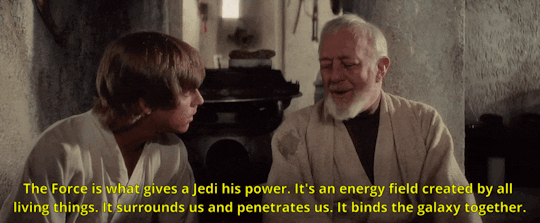
... but they're mostly vectors Lucas uses to present his thesis.
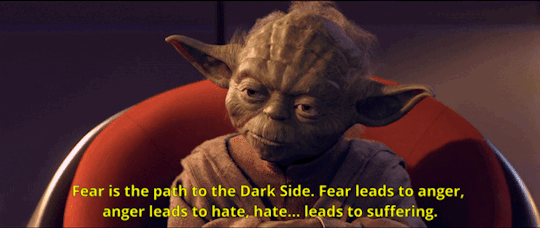
Functionally-speaking, the Jedi are important in that they embody the Buddhist philosophies the movie's themes are based on.
But when it comes to the plot, they're secondary. That's because the the themes of these films are bigger than the Jedi themselves.
So the question becomes... what's are the themes?

The primary goal of the Star Wars films is to inspire kids to start thinking outside the box and teach them a set of values and psychological motifs that have been passed down through mythology and fairy tales.
These values can be summed up in the dichotomy between greed and compassion / selfishness and selflessness / pleasure and joy.
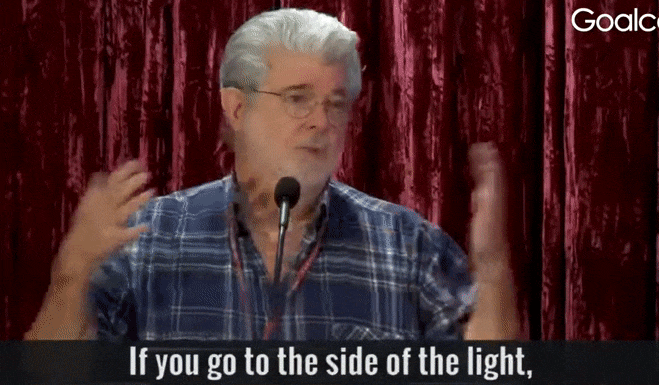

We all have both aspects and need to strike a balance between the two. After all, being greedy ultimately comes from fear and being afraid can happen to all of us. Problem is, unchecked fear can lead to anger, hate and a whole lot of suffering.
The more selfish you are, the more you want things and the more you're afraid that you'll lose everything you have, you'll get angry when someone tries to take it and that will hurt everyone around you.
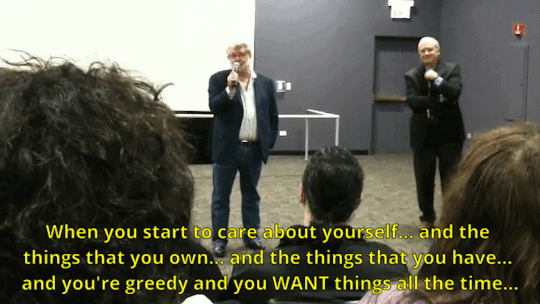
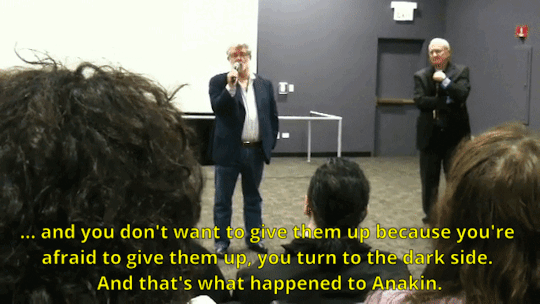
In other words, fear is the path to the tempting/addictive Dark Side.
Thus, seeing as we'll be inevitably tempted by the Dark Side and give in at some point (because nobody's perfect), we should aim to be as selfless and compassionate as possible for our own good... but also for the greater good, because we're all connected to a life energy. You can call it Qi or God; in Star Wars it's known as the Force.
As such, we all form a symbiotic circle and working with that in mind is better than putting ourselves first and draining from everything and everyone around us.
But we also need to be careful because there will be people who give in to that selfish side and will try to control everything. When the time comes, we must stand up for what's right.
So that's Lucas' thesis.
If I had to sum them up, the six movies illustrate it as follows:
The Prequel Trilogy is about the consequences of greed, explored through Anakin on a smaller scale and the Senate on a larger one.
The Original Trilogy shows the triumph of compassion, through Luke, Leia & Han and the Rebellion's fight against the Empire.

Lucas talked about it multiple times, the Prequels are about how Anakin becomes Darth Vader and how the Republic becomes the Empire, and in both those cases, it happens because they're greedy.
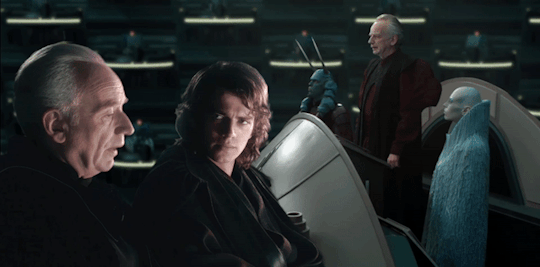
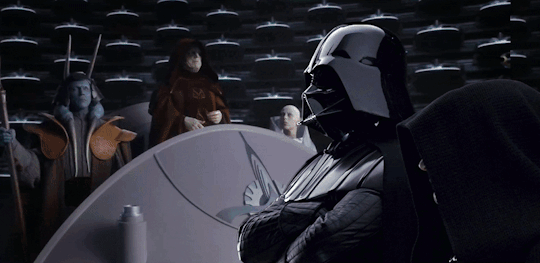
The Senate is greedy in the more classical sense. They could give a shit about "symbiosis", no they're taking bribes, letting corporations dictate policy, using loopholes to keep themselves in power and halting any meaningful progress out of fear that the new status quo will conflict with their own self-serving goals.
Anakin's greed manifests in a different way. He turns to the Dark Side because of his attachment. He wants to stop Padmé from dying... but not because he wants to save her, rather he wants to save himself from feeling the pain of loss again and will do anything to not have to live without her, her own wishes and the natural cycle of life and death be damned.
In both cases, they cave under pressure orchestrated by Palpatine, but nobody puts a gun to their head. They make a deliberate choice that comes from a selfish place, and neither one takes personal responsibility for it, they blame others, the Separatists in the case of the Senate and the Jedi in Anakin's case.
The Republic becomes an Empire with thunderous applause, betraying the people it was meant to protect.
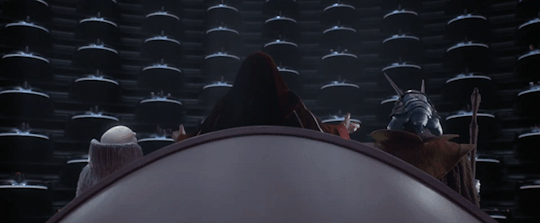
And when faced between doing something he knows is right and giving in to his selfish desires...
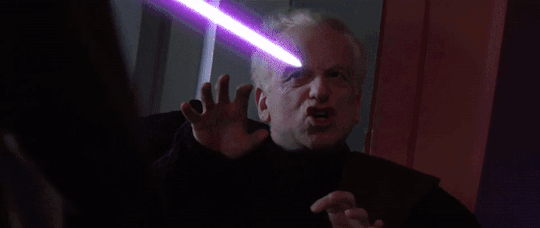
... Anakin elects to do the latter, thus betraying his family and leaving the Force in darkness.

These selfish choices impact the galaxy as a whole, including the only characters in the trilogy who were doing their best to be compassionate and live in symbiosis: the Jedi, Padmé and Bail.
These champions of the Light Side are stuck playing catch-up or helplessly witnessing the events unfold, throughout the trilogy. They're playing by the rules and Palpatine uses this to his advantage.
Thus, as the galaxy tears itself apart because of Palpatine's manipulations, the Jedi and Bail are ignored and gradually weakened until they're either rendered irrelevant or killed.
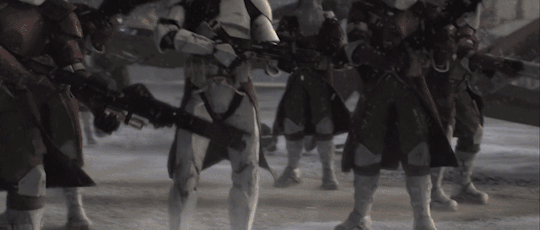
A new order is born, one built on blood, lies and greed: the Empire.
But a new hope remains.


While before, the Jedi and people like Bail stood alone as everything around them became willfully corrupt... now, a Rebellion inspired by their legacy has banded together to overthrow the current order. But they don't fight for power or personal glory, they fight for altruistic, compassionate reasons. There's a sense of general responsibility that moves them, they're all doing their part.
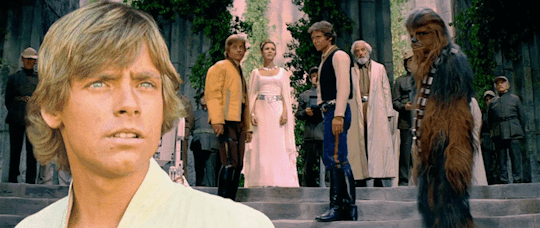
On a larger scale, we focus on the Rebels, who are tired of seeing people suffer and decided this needs to stop. They have gone from being passive, to proactive.
On a more personal scale, we see the evolution of Luke, from naive farmer to a hero, and guess what? More and more selfish people - like Han or Lando - are inspired to join the Rebellion, after seeing the exploits of Luke, Leia, or even Ben.
It all culminates in the final film, wherein:
The Rebels band together with the Ewoks - literal teddy bears whom the Empire, in their arrogance, never even considered to be a threat - to destroy the Second Death Star and free the galaxy from imperial tyranny.
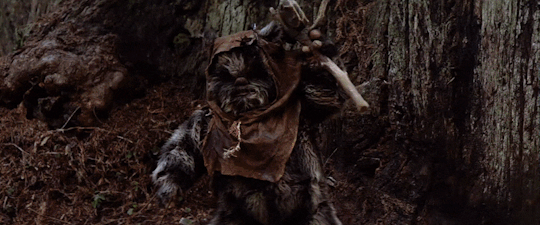
At the same time, Emperor Palpatine pressures Luke, who is tempted by the Dark Side like his father was.
But instead of giving in to his selfish desire to kill Darth Vader for all the horrors he's done...
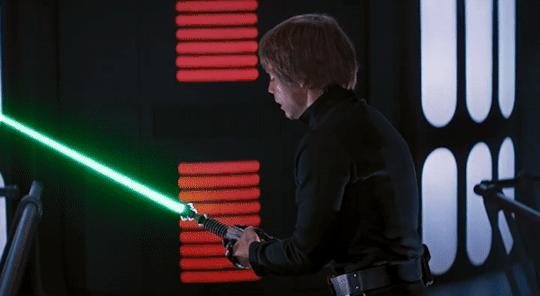
... he finds the strength to rise above it, instead showing compassion for his father, which, in turn, inspires Anakin to do the same.
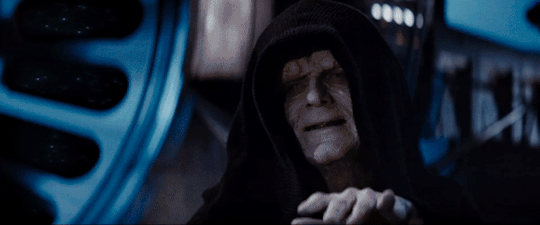
He faces a choice, like he did in Palpatine's office, two decades prior...
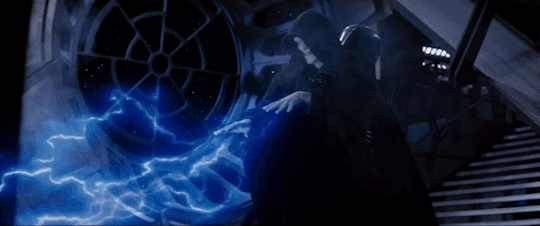
... and this time he chooses right.
Children teach you compassion. Anakin lets go of his fear and anger, and saves his son at the cost of his own life, finally bringing balance back to the Force.
Good triumphed over evil. Its champions achieved victory by being selfless, hopeful and fighting together / helping each other.


And that's it, that's how the movies thematically tie together.
As you can see, the Jedi aren't that directly impactful on the overall plot, because it revolves around Anakin, Luke and the respective factions/institutions around them.
But what the Jedi do bring to the table is their ability to teach and inspire others, both in-universe and out. They're spiritually impactful.
The Jedi are the epitome of compassion, and it's partially through them that George Lucas teaches his values to the audience.
#to be clear: Star Wars doesn't HAVE to be about all this#This is just me trying to summarize what Lucas said in all his interviews and speeches#The post-Lucas Star Wars transmedia franchise made the Jedi more central than they were originally meant to be; especially in the Prequels#You see this in interviews from current SW creators /writers#but also small stuff like renaming the Prequel era “Fall of the Jedi” when it was originally named the “Rise of the Empire” era#meta#george lucas#star wars#jedi order#the force#anakin skywalker#luke skywalker#prequel trilogy#original trilogy
732 notes
·
View notes
Text
video game companions see an enemy with 2 hp left and suddenly they have all the aim of a newborn baby doe armed with a tiny little needle
#it’s so evil… i was starting to like combat and they throw the dodgey spiders at me#the enemies who dodge a lot are my most hatedddddd makes battles last for ages. centuries#empire rise and fall and im stuck fighting spiders with people made of jelly
29 notes
·
View notes
Text
The Rise and Fall of the Galactic Empire - Introduction Analysis
"...People so often misunderstand the purpose of historians. They think that we are just here to recount past events. To provide details without analysis. Facts without insight. Data without argument. This is wrong. The role of a historian—my role as a historian—is to try to tell you not just how but why these things happened. To try to make you understand the importance of these past events and what they mean for us today and tomorrow. This study is not just a work of history but of necessity. The galaxy needs to understand exactly what the Galactic Empire was and how it brought us to our latest brush with disaster. I can think of no more important undertaking than this one and no more required moment." (Kin, Beaumont, "Introduction", The Rise and Fall of the Galactic Empire, 35 ABY, page xvii).
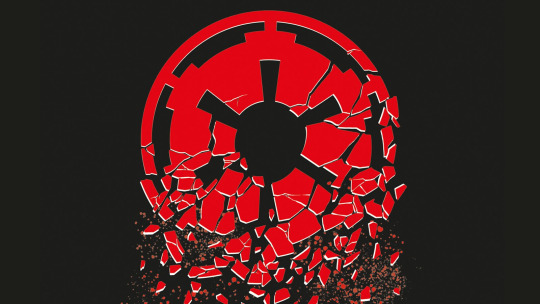
The Rise and Fall of the Galactic Empire is one of the best Star Wars novels I've read. The novel is an in-universe annotated history book written by Beaumont Kin ("Secrets only the Sith knew"), a historian with an interest in the lore of the Jedi and Sith, who reflects on the terrifying origins, reign, and legacy of the Galactic Empire. We also get a brief glimpse of what the post-TROS galaxy looks like but that isn’t the main point.
It is a part of several in-universe reference books being published post-TROS, which is a nice touch.
This study was published on the Holonet a few months post-TROS as Kin is excavating the Sith Temple on Exegol.
Introduction
History is a cycle, we wish to avoid it but it always finds a way to start the wheel again. The cycle certainly reflects the history of Star Wars.
Kin sadly laments that despite the Empire's evils being known and seemingly easy to understand, it seems easy to teach future generations and prevent the cycle from repeating itself, he considers himself a fool for being naive. As history has shown us and Kin, it has a tendency to repeat itself in various forms.
"It seemed to be an easy message to explain something that was now safely behind us. My colleagues and I congratulated ourselves on the ways we'd been able to take the realities of the Empire and convert them into lessons in schools and universities, which would then further ripple across the galaxy. We were so sure that we had created the perfect way of preventing future conflicts and a return to Imperialism. We were fools. I was a fool. As much as we might have wished that the remnants of the Empire could have been left to rot beneath the sands of Jakku, it seems that we could not be free of it so easily." (Kin, Beaumont, "Introduction", The Rise and Fall of the Galactic Empire, 35 ABY, page ix).
One element that is simply merch in real life but in-universe is the source of shock to Kin: Palpatine busts being sold at the Black Spire Outpost, among other Imperial objects. How could the galaxy reach the point that a being who murdered trillions of beings has busts being sold?
Despite the Resistance's and the galaxy's victory at Exegol, Kin can't help but wonder if the celebrations on Endor and Ajan Kloss are very similar. Both generations have celebrated the defeat of the Emperor, won their wars, and are driven to create a better galaxy, in the case of the last generation, including the current one who followed to preserve the hard-won peace, they were not successful.
However, this failure to maintain peace has very understandable origins. The leaders and soldiers of the Rebel Alliance wanted to look towards the sunrise of the New Republic after a brutal and horrifying war against the Galactic Empire. They focused on their desire to move forward with hope and optimism and for this to never happen again, they were not careful in taking the necessary steps to prevent Imperialism from rising. A failure to understand how the Empire operated, ruled over, and why its personnel committed so horrific war crimes over and over. It would be a nice thought to think with the Emperor dead, so would his Empire die with him. And in a way it did, but gave birth to a new form of Empire as the First Order. While the First Order likes to fashion itself differently from the Empire with a new name and outfits, their origins intrinsically tie back to the Empire which the New Republic and the new generation failed to see. They cannot risk another situation like this happening again.
Stories like The Mandalorian and its spin-offs, Bloodlines, Before the Awakening, Resistance, and the Poe Dameron comic show us how the New Republic fails to recognize the threat of the Imperial Remnants and the First Order, even when they're violating New Republic treaties. Complacency and appeasement became the new policy for the New Republic. They think the threat of the Empire is long behind them, and whoever is left is just simply ill-equipped warlords. They fail to understand why Neo-Imperialism grew as it did and why people want the return of a regime that killed so many sentient beings. It was left to those in the New Republic who saw the emerging threat, the Resistance, and those affected by these Remnants and the FO to act.
While discussing the Jedi and the Sith, Kin acknowledges how, despite his attempts to understand it, he still doesn't know everything about the Force, along with the galaxy not being clear on what the Forse is and if it exists. He then talks about how Palpatine managed to seize control of the entire galaxy as a Sith Lord, Kin made it clear Palpatine's desire for power and control was all him and not by anything else. Palpatine was a man. It is the most terrifying aspect of this Sith Lord. Much more terrifying is how Palpatine wasn't the Empire, he may be the linchpin of the Empire but there were plenty of people who believed in his Empire and maintained it.
There are four parts to the Rise and Fall of the Galactic Empire:
Part 1: Rise and Consolidation - Palpatine's rise to power and how the Empire consolidated itself.
Part 2: Expansion and Oppression - The methods of the Empire's dominance across the entire galaxy, the Imperial hierarchy, and the many horrific things (such as prejudice and genocide) the Empire did with that domination.
Part 3: The Galactic Civil War - The war and why the Empire collapsed.
Part 4: Fall and Continuation - The last year of the GCW and, with it, the fall of the Empire. But alas, the Empire continues to survive in its remnants and the rise of its most infamous of these remnants, the First Order. There are also the NR's successes and failures.
Kin went for the BBY/ABY (Before/After the Battle of Yavin) calendar system because the Empire's modus operandi significantly shifted after the destruction of the first Death Star with clear distinctions between pre- and post-Battle of Yavin. He also acknowledges how there are some debates over which dating system is the best among them being set after the Empire formed and the "before" and "after" periods at Endor rather than Yavin. In this, he also points out how the Empire was never at peace, and that the GCW greatly showcased and increased its brutality towards its own people.
While this work isn't the first one to study and analyze the Empire, it is perhaps the most relevant to discuss right now. There are beliefs and understandings of the Empire that are built on flawed information and shaky foundations. Some of what they understand is possibly wrong. Therefore, they must reexamine the Empire again and understand and therefore deconstruct the Empire beyond Palpatine.
"Furthermore, the very reasons for its eventual fall and collapse do not appear to have been adequately researched and analyzed at all. We know why the Rebel Alliance believed they won the war. Do we know why the Empire lost it? Because the Galactic Empire was so misunderstood, it is necessary to begin the process again. That is the point of this study. To deconstruct the entirety of the Galactic Empire beyond just notions of Palpatine himself. To see how it actually worked, the ideas and ideology that drove it, the ways it waged war, and the motivations behind its most awful crimes." (Kin, Beaumont, "Introduction", The Rise and Fall of the Galactic Empire, 35 ABY, pages xv-xvi).
Of course, researching the Empire is not easy. The history of the Empire is spread out across the entire galaxy. With the fall of the NR, there is now access to classified material such as interrogations of Imperial officers. It would've been impossible for Kin to find and compile this while excavating on Exegol. We see the galaxy coming together as researchers and other academics from across the galaxy pitch in to provide sources and information for Kin to scour through. Kin thanks all of them for realizing the importance of this analysis and is sure to acknowledge their work throughout his study. There is also lost information. After all, the Empire loves to burn and destroy the various records of their crimes and how they operate. Other sources are just lost during the fighting. With the excavation of Exegol and access to FO ships, new sources of information have allowed Kin to cross-reference and provide new understandings of the Empire.
He does acknowledge and welcomes the risk of his work becoming outdated and replaced with new studies containing new, undiscovered, and decrypted information. New studies can further elaborate on their understandings and help prevent the rise of Imperialism once again if they can at least find one new area they missed or have the chance to further understand. He points historians aren't just about telling the how but the why things in history occur. The galaxy needs examinations of the Galactic Empire and the history of its reign which allows them to better understand how they narrowly avoided the First Order's brief reign and Final Order's apocalyptic plot.
There is a nice nod to the Battle that Changed the Galaxy and Skywalker: A Family at War reference books as Kin notes how other historians like him are also noticing the need to reexamine history after Exegol, with the latter getting its author namedropped with a Star Wars-like name (the author was Kristin Baver, but in the Star Wars universe, her name is Kitrin Braves). Kin thanks Kitrin for sharing her information on the Skywalker family for him to talk about in Rise and Fall and notes it's been a long time coming for people to know the history of the Skywalkers in Kitrin's book.
The Empire's war crimes and cruelty are beyond horrifying and applied to anyone they come across, their cruelty is not equally felt. The Core Worlds often did not suffer as much as those outside of the Core. While some humans, such as the Alderaanians, have indeed lost everything to the Empire, the Empire's inherent prejudice is frequently focused on non-humans (a term admittedly imperfect and problematic in its own ways but much better one in-universe than the term "alien" which the Empire uses to showcase their racism towards non-humans). The Empire has made no attempt to hide their discontent and hatred for non-humans. Kin acknowledges he is a human, and he never felt the experience of the Empire's prejudice by the Empire just for being not human. He has tried his best to highlight those species and voices who have been silenced and suffered under the Empire's prejudice and genocides. He understands and apologizes for the criticisms that might come with any shortcomings that he and his studies may provide. Recognizing and analyzing both the sources and himself within this study are necessary parts of this analysis.
As the introduction concludes, we must ponder how despite the victories throughout the saga, we take a look at the horrifying and monstrous regime that is the Empire and its legacy. Our reality is filled with people who continue to follow Fascism and other far right-wing beliefs despite its clear evils, a look into the Galactic Empire is insight to why.
"The survivors of the Battle of Crait have become fond of saying, in moments of sorrow and loss, that ‘no one's ever really gone.’ It seems to bring them solace and I respect that. But I do not feel it. I have immersed myself in the existing records and writings and sources that relate to the Galactic Empire. And all I feel is the absence of lives that it brought. The multitudes who suffered and died. The further into this dark history I have gone the more horrified and haunted I have become. That is why this study now exists and why it is so important that you read it. Others in the Resistance will now lead and shape the galaxy. I cannot do that. I can only try and explain where we have come from. Why we have ended up here. But I need you to come with me. I cannot do this alone." (Kin, Beaumont, "Introduction", The Rise and Fall of the Galactic Empire, 35 ABY, page xix).
#star wars#the rise and fall of the galactic empire#rise and fall of the galactic empire#star wars analysis#my original post#rise of skywalker#skywalker saga#the sequel trilogy#beaumont kin#galactic empire#rebel alliance#the new republic#the first order#emperor palpatine#anakin skywalker#luke skywalker#rey skywalker
25 notes
·
View notes
Text
It’s so funny when people on TT are like “Oh Velvet and Veneer should’ve won”
Because when you really think about it, they kinda did.
Velvet desperately wanted to be famous (and Veneer wanted to make her happy) and in the song Mount Rageous she says “baby remember my name” several times, and the background vocals start chanting “remember” over and over, as if to cement this.
But like, Mount Rageons *are* gonna remember that scandal forever.
Because imagine if someone like Taylor Swift was outed as a fake during the Eras tour. People would NEVER stop talking about it. There’d be so many documentaries, video essays, articles, etc.
And ppl would STILL listen to her music, because that’s how stan culture works.
I’m not trying to pick on Swifties, I’m just using it as an example to show that Velvet and Veneer will be talked about by Mt. Rageons for decades to come.

#cowboy spiel#trolls#dreamworks trolls#trolls band together#velvet and veneer#velvet trolls#veneer trolls#mount rageous#listen if I was a mount rageon this would be my roman empire#I’d watch every video essay on the rise and fall of velvet and veneer and then tell everyone I know about it in great detail
99 notes
·
View notes
Text
After reading Michael J Sullivan's progress reports and seeing that the next series is likely set after Riyria Revelations I would like to conclude that Elan has the funniest reading order. So you start with the fourth series chronologically. Then you read the third one (but actually you can read this series whenever). Then you go to the chronologically earliest series, then the second one, then only do you go to the fifth. Hold on I gotta draw a diagram
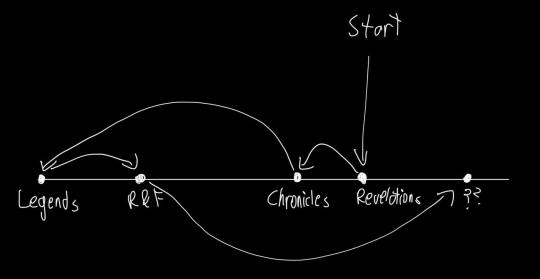
#you guys get the privilege of seeing my shitty handwriting today#riyria#riyria revelations#riyria chronicles#legends of the first empire#the rise and fall#elan#michael j sullivan#however for me it was revelations chronicles 1-2 legends 1-2 chronicles 3-4 legends 3-6 rise and fall#and of course the rest of chronicles aren't out yet. i think michael should include major spoilers so we can fuck up the reading order more#you actually have to read half of this series then this whole other series then only can you finish chronicles#and in the end it's all useless because revelations chronicles and legends can all be read first#i don't think rise and fall can though but it sure would be a funny experience
32 notes
·
View notes
Text
New canon reference book about the Empire? Written by an actual historian? Dropping this year?

#star wars#the galactic empire#Chris Kempshall#the rise and fall of the galactic empire#how am I just finding out about this now??
82 notes
·
View notes
Text

The biography I didn’t know I needed.
#manifesting Disney to commission it#of course Thrawn has a political controversies file#it’s measured in terabytes of data#the rise and fall of the galactic empire#thrawn#mitth'raw'nuruodo
47 notes
·
View notes
Text
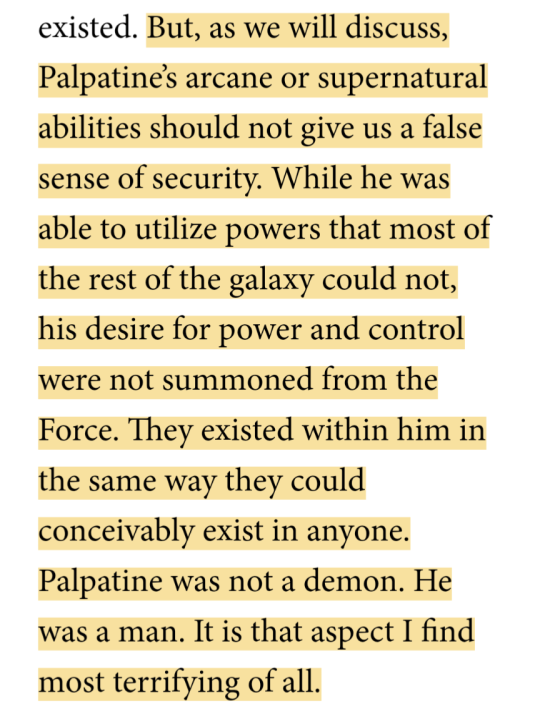
The Rise and Fall of the Galactic Empire by Dr. Chris Kempshall
35 notes
·
View notes
Text
this fictional history novel is a comedy, actually, because the idea that palpatine is so viciously insecure about his public persona that he has someone executed for it + vader being like "but that's my unlovable father figure-- nevermind I'm proving the pet cyborg allegations right by killing you" is insanely funny to me.

#the rise and fall of the galactic empire#darth vader#anakin skywalker#sheev palpatine#darth sidious#sarah reads star wars canon
39 notes
·
View notes